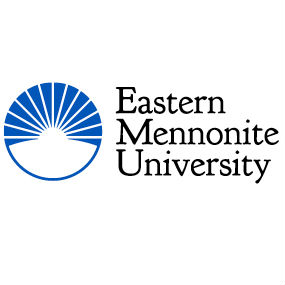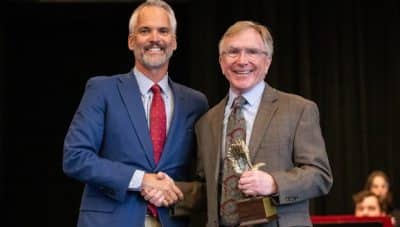
For those who share that view, it should come as good news that students enrolling in university science, technology, engineering and math (STEM) programs across the country are increasingly diverse. At the same time, a poor retention rate among this group is prompting STEM educators to explore different ways to better meet the needs of a changing student body.
Eastern Mennonite University is no exception. More than 30 percent of incoming freshman STEM majors are minority students. But after two years, around 7 in 10 of these incoming students are no longer pursuing a STEM major. These statistics are similar to those reported by universities across the country.
Over the next three years, the university will work to improve its retention rate of minority students in STEM programs, using a recently awarded $300,000 grant from the National Science Foundation (NSF) to improve instructional techniques in the classroom and laboratory.
New academic language and culture can be a barrier
Ayu Yifru, a sophomore biology major originally from Ethiopia, understands well the challenges that face a growing number of her STEM peers. One of the primary ones is a simple language barrier.
“When my friends and I are taking an exam, we’ll get stuck on a particular word that we can’t figure out,” says Yifru, who spoke very little English when she arrived in the United States at 16. “It’s not easy to master any kind of language … [And] when we are in class, some of the teachers go pretty fast. Sometimes I get lost, and I have no clue what they’re talking about.”
Cultural norms can also discourage minority students from asking questions in class or approaching professors for help afterwards. Additionally, many of them are first-generation college students, meaning that their parents may be less familiar with how to navigate the academic and social rigors of college.
“[These students] have to adapt to an academic culture and a university culture that their parents couldn’t introduce them to, and on top of that, the STEM culture. It’s like going to a foreign country three times over,” said Steve Cessna, professor of biochemistry.
Cessna is the principal investigator on the NSF grant, “Faculty-Led Institutional Transformation for Teaching Diverse Learners in STEM.” In addition to STEM faculty, EMU’s education department and the multicultural services office will also participate.
Multi-faceted grant asks for teaching as research
The grant includes faculty trainings on bias and ways that teaching methods can better respond to changing student needs, a mentoring program for STEM faculty and improvement of a peer tutoring program for minority and first-generation college students in STEM majors.
Cessna said that a challenging aspect of the grant’s implementation for STEM faculty will be “treating our own work as small research projects.” That means consulting the literature and experimenting with teaching methods that have been shown to be more effective than the traditional university lecture. While this process is extremely familiar to program faculty in their work as scientists, it’s not an approach that’s often applied to their roles as teachers.
In his first-year “Chemistry for the Life Sciences” class, Cessna has begun making changes by decreasing lecture time and scheduling more interactive group work.
“[The students] are doing more problems together in a more social way. My class is pretty noisy. It’s something that I’m testing out – it’s based on a good amount of research that I’ve already read that teaching in this way can be effective,” he said.
Each Friday, Yifru – who has signed on as a peer mentor – is there in the class to tutor and help. She also leads extra study sessions before quizzes and exams.
“I really like helping people who are stuck, because I was once in their shoes. I know how to help them,” she said.
As a final component of the grant, EMU will share its findings and conclusions with STEM departments with other universities experiencing similar enrollment trends and challenges.










